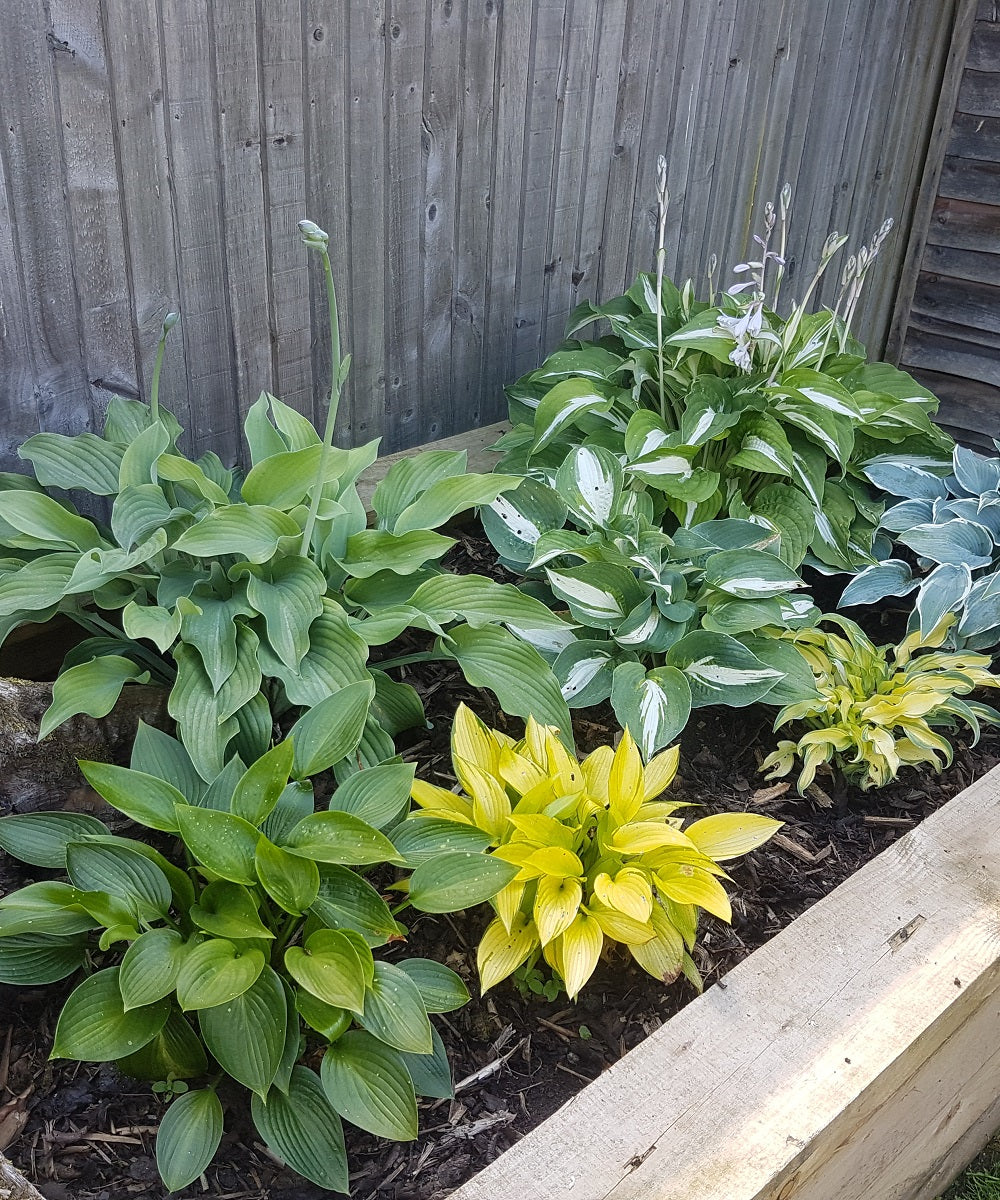
As a hosta grower, caring for your plants in an organic, eco-friendly way ensures not only vibrant and healthy foliage but also benefits the environment. With the rise in environmental awareness, many gardeners are adopting sustainable practices to minimise chemical use, protect local ecosystems, and promote biodiversity. In this blog, we will explore organic and eco-friendly hosta care tips to help you cultivate thriving, environmentally conscious gardens.
The foundation of any organic garden is nutrient-rich soil. Instead of relying on chemical fertilizers, boost your soil’s health by adding compost, well-rotted manure, or leaf mould. These organic materials improve the soil structure, retain moisture, and supply essential nutrients, allowing your hostas to thrive. Additionally, mulch made from bark, straw, or shredded leaves helps suppress weeds and maintain soil temperature while providing organic matter as it decomposes.
Tip: Apply a 2-3 inch layer of organic mulch around your hostas, avoiding the crown, to prevent rot and retain moisture.
Slugs and snails are common pests that can damage hostas. Instead of using chemical slug pellets, consider organic alternatives that protect your plants without harming beneficial insects or wildlife.
Watering your hostas efficiently not only conserves water but also supports plant health. Hostas prefer moist but well-drained soil, so finding a balance is key.
While hostas benefit from nutrient-rich soil, they may need a boost during the growing season. Use organic fertilizers like fish, blood and bone, seaweed extract, or compost tea to provide essential nutrients without synthetic chemicals. These natural fertilisers encourage healthy root development, vibrant foliage, and overall plant resilience.
Tip: Apply organic fertiliser in spring when hostas start emerging and again in midsummer for sustained growth.
Weeds can compete with your hostas for water and nutrients, but herbicides are not necessary to keep them at bay. There are several organic methods to prevent and manage weeds:
Encouraging biodiversity in your garden creates a balanced ecosystem where pests are naturally controlled. Companion planting with species that repel pests or attract beneficial insects can enhance your hosta garden.
To create a truly eco-friendly garden, avoid synthetic chemicals like pesticides, herbicides, and fungicides. These can have long-lasting negative effects on soil health, wildlife, and even human health. Organic gardening focuses on prevention and natural solutions to maintain healthy plants and ecosystems.
By incorporating these organic and eco-friendly care practices, you not only nurture your hostas but also contribute to a healthier environment. Gardening sustainably encourages biodiversity, conserves resources, and promotes the long-term health of your garden. Whether you're a seasoned gardener or just beginning, these methods will help you grow beautiful hostas while minimising your ecological footprint.



